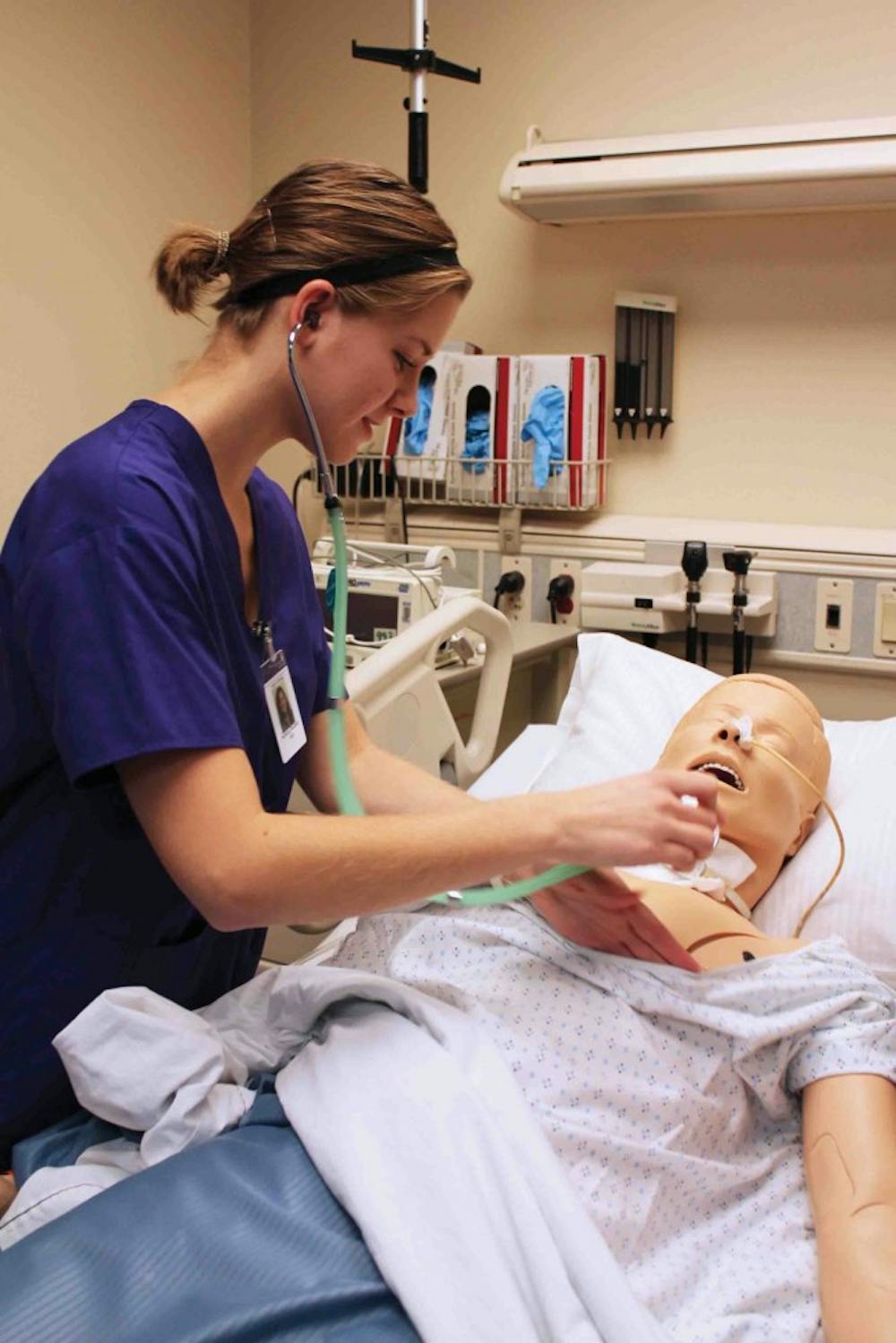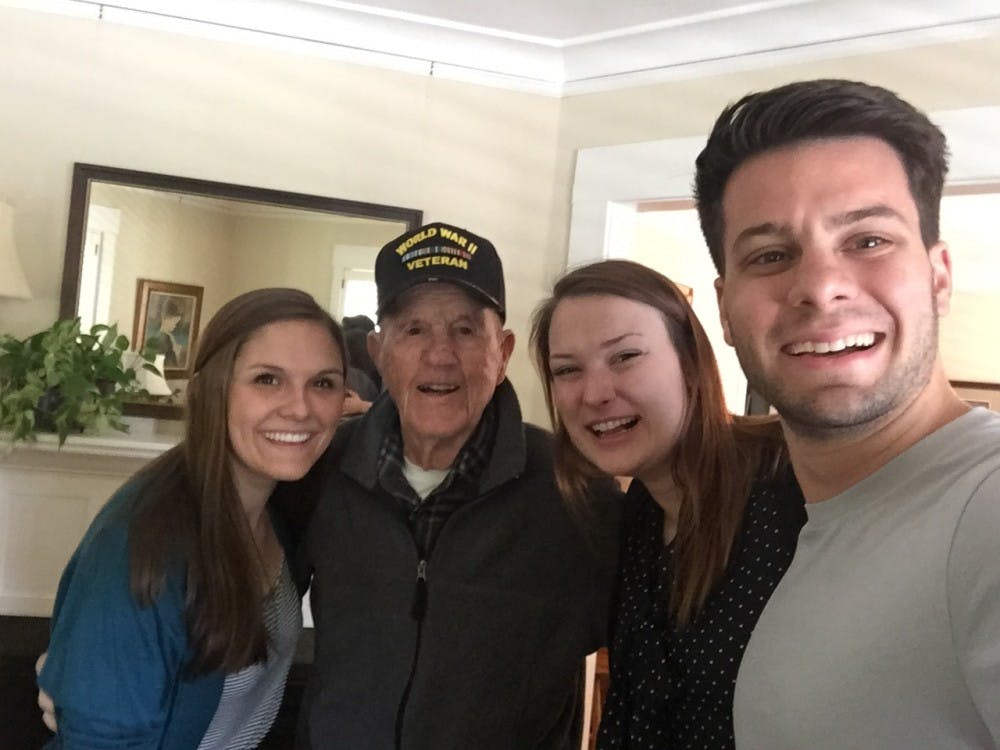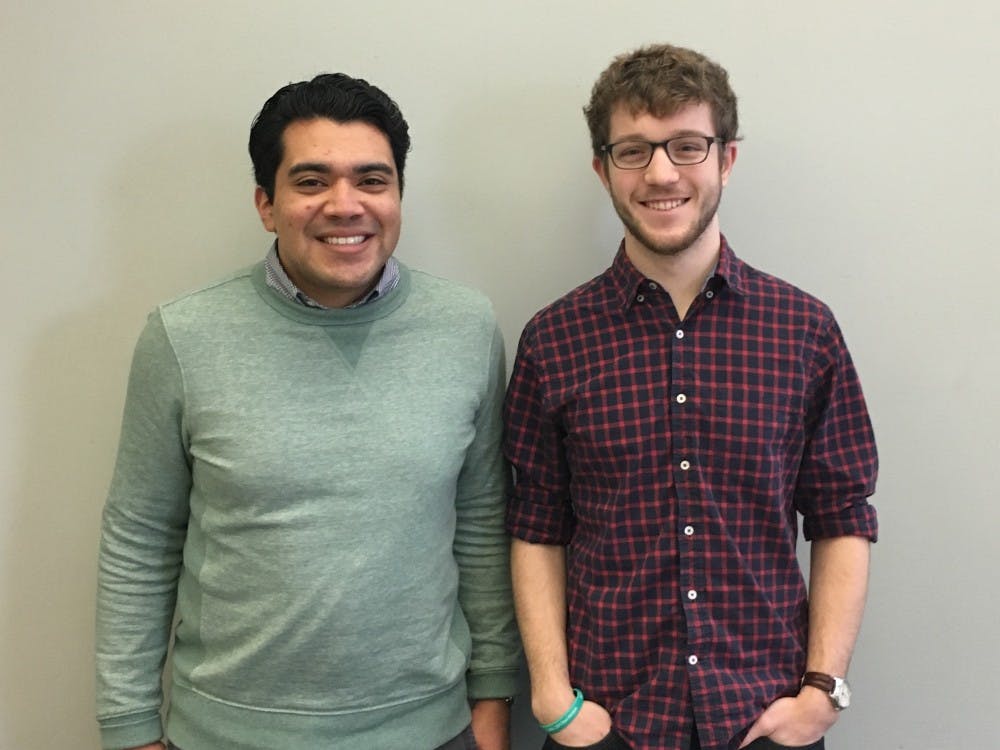UP nursing students partner with senior citizens in an award winning program.
Junior Holli Tuss checks the heartbeat of a life like patient. Practicing often in a realistic setting helps nursing students develop great experience. (Scott Chia -- The Beacon)
By Caitlin Yilek, Staff Writer -- yilek12@up.edu
Junior Emma Brenner spent a recent Thursday with an 85 - year - old woman talking about everything from medication to childhood memories.
"She likes to tell me about her childhood," Brenner said. "I learned today that she collects pottery."
Brenner is not the only UP student spending her afternoons chatting with a senior citizen. This fall, 120 junior nursing students were paired with senior citizens in UP's Client-Partner Project.
In 2007, the Client-Partner Project at UP won a national award for Excellence in Gerontological Nursing Education from the American Association of Colleges of Nursing.
The purpose is to help students learn about the healthcare needs of seniors.
"Most students have no experience in the healthcare setting," Karen Cameron, assistant professor of nursing, said. "They are anxious and nervous about expectations and their skills. We learned that this program helps reduce the student's anxiety when they are moved into a clinical setting."
Throughout the semester, nursing students must conduct introduction and closure interviews with their clients.
"It's important for the student to develop some skill at ending a professional relationship as well as beginning one," Cameron said.
Students must also interview their clients for five projects, relating the senior citizens to each of their classes.
"The length of the meetings is really up to the client and the partner," Cameron said. "I generally suggest 45 minutes to an hour and a half."
The program has been in place since 2004. Previously, this program was linked with only one nursing class.
"(The program) is to assist nursing students in their interviewing and phone conversation skills, learning how to dress appropriately and asking difficult questions," Cameron said.
In class, nursing students role-play possible scenarios to prepare them for the client-partner visits.
"This is a good experience because it gets us used to interacting with people we don't know," junior Kristian Ingebretsen said. "Eventually, we're going to have a wide range of patients, and we can't pick and choose."
According to Cameron, the clients often learn more about illnesses and medications from a student than from their healthcare provider.
Every summer Cameron recruits seniors for the Client-Partner Project.
"I am pretty shameless when recruiting," Cameron said. "I recruit from my church, water aerobics class and make presentations to surrounding assisted living homes."
Cameron says there are qualifications for the clients to participate in the program.
"They must be 65 and older, able to conduct a conversation and work with students who don't necessarily have good interviewing skills, know their medication history and share their lives with the students," Cameron said.
The clients come from a variety of backgrounds.
Junior Kelsey Siekkinen's client grew up in San Francisco and moved to Portland after retiring.
"(My client) travels a bunch," Siekkinen said. "She has even hosted families from Thailand and Australia."
All three nursing students say that the hardest part of their experiences is overcoming the fear of introducing themselves to someone new.
Though the program runs the length of a semester, Cameron says on occasion, students and clients become attached and remain in contact with each other. Cameron is still in contact with her own client.
"I have been in touch with and have visited my client since 1996," Cameron said.
Similar programs are starting at other schools and Cameron has provided start-up information to Seattle Pacific University and a school of nursing in Montana.
"The faculty at SPU has initiated a modified version of this project this year," Cameron said.








